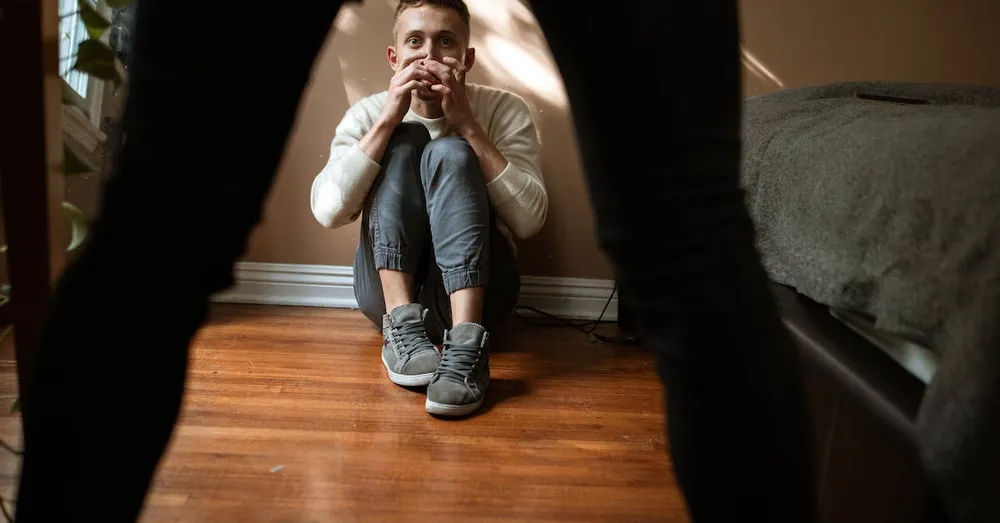
Step 1: Recognize Your Victim Thinking
The first step to overcoming victim thinking is to recognize when it is happening. This might seem like an obvious step, but many people are not aware of when they are falling into a victim mentality. Some common signs of victim thinking include feeling helpless, blaming others for your problems, and feeling like you have no control over your life.
One way to recognize your victim thinking is to pay attention to your thoughts and emotions. When you find yourself feeling hopeless or helpless, take a moment to reflect on your thoughts. Are you blaming others for your problems? Are you feeling like you have no control over your life? These are all signs of victim thinking.
Step 2: Take Responsibility for Your Life
Once you have recognized your victim thinking, the next step is to take responsibility for your life. This means recognizing that you have the power to change your circumstances and that you are ultimately responsible for your own happiness and well-being.
One way to take responsibility for your life is to start setting goals and working towards them. By setting goals and taking action to achieve them, you are taking control of your life and showing yourself that you are capable of making positive changes.
Another way to take responsibility for your life is to stop blaming others for your problems. Instead of blaming others, take a step back and try to understand the situation from a different perspective. This will help you see that you have the power to change your circumstances and that you are not a helpless victim.
Step 3: Practice Gratitude
The final step to overcoming victim thinking is to practice gratitude. When you are in a victim mindset, it is easy to focus on all the negative things in your life and to forget about all the good things. But by practicing gratitude, you can shift your focus to the positive things in your life and start to see the world in a more positive light.
One way to practice gratitude is to make a list of things you are grateful for every day. This can be as simple as writing down a few things that you are grateful for before you go to bed each night. Another way to practice gratitude is to take time to appreciate the little things in life, such as a beautiful sunset or a kind gesture from a friend.
By recognizing your victim thinking, taking responsibility for your life, and practicing gratitude, you can overcome victim thinking and start living with agency and purpose. Remember that changing your mindset takes time and effort, but with persistence and determination, you can overcome victim thinking and start living the life you want.
In conclusion, victim thinking is a common mindset that prevents people from achieving their goals and living the lives they want. But it is possible to overcome this by recognizing your victim thinking, taking responsibility for your life, and practicing gratitude. Keep in mind that changing your mindset takes time and effort, but with persistence and determination, you can overcome victim thinking and start living the life you want. Remember that you always have the power to change your circumstances, and you are ultimately responsible for your own happiness and well-being.
Step 4: Challenge Your Negative Thoughts
Another powerful step in overcoming victim thinking is to challenge your negative thoughts. When you are in a victim mindset, it is easy to fall into the trap of negative thinking and to believe that things will never change or get better. But by challenging your negative thoughts, you can start to see things in a more positive light.
One way to challenge your negative thoughts is to question their validity. Ask yourself if there is any evidence to support the thought, or if it is just an assumption. If the thought is based on assumptions and not on facts, try to reframe it in a more positive light.
Another way to challenge your negative thoughts is to practice mindfulness. Mindfulness is the practice of being present in the moment and paying attention to your thoughts and emotions without judgment. By practicing mindfulness, you can become more aware of your negative thoughts and learn to let them go.
Step 5: Surround Yourself With Positive People
The people you surround yourself with can have a big impact on your mindset and attitude. If you surround yourself with negative people who constantly complain and blame others, it can be hard to overcome victim thinking. But if you surround yourself with positive and supportive people, it can be much easier to overcome victim thinking and start living with agency and purpose.
One way to surround yourself with positive people is to seek out a support group or community of people who have similar goals and aspirations. Being around like-minded people can provide a sense of belonging and can help you stay motivated and on track.
Another way to surround yourself with positive people is to make a conscious effort to spend time with people who uplift and inspire you. This can be friends, family members, or even acquaintances who bring positivity and joy into your life.
In conclusion, overcoming victim thinking is a process that takes time and effort. But by recognizing your victim thinking, taking responsibility for your life, practicing gratitude, challenging your negative thoughts and surrounding yourself with positive people, you can start living with agency and purpose. Remember, change is not always easy, but it is possible. Keep in mind that you always have the power to change your circumstances and you are ultimately responsible for your own happiness and well-being. With patience, perseverance, and a positive attitude, you can overcome victim thinking and start living the life you want.
Комментарии
Отправить комментарий